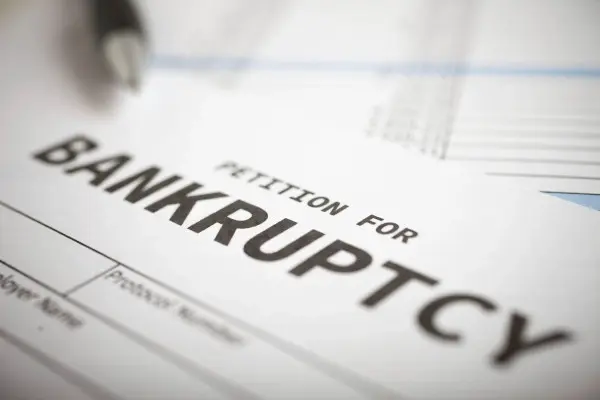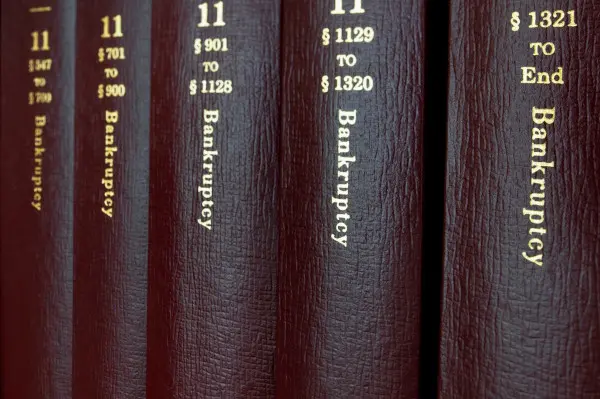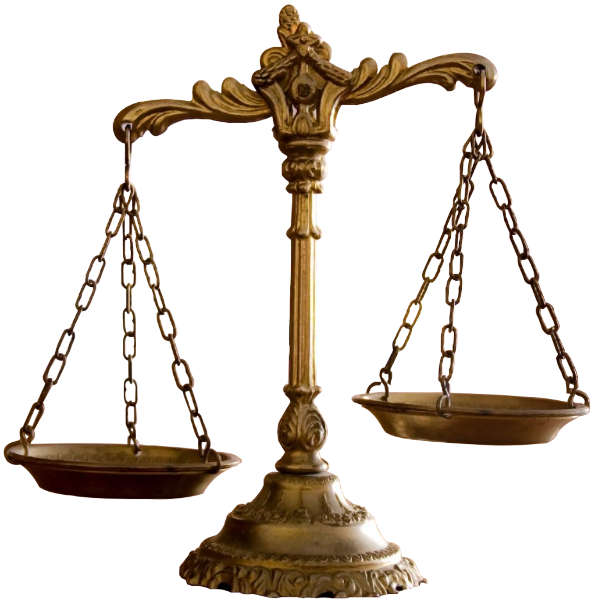Bankruptcy
San Diego Bankruptcy Lawyer
At the Law Firm of Mark A. Reed, we believe people should not be burdened by unscrupulous debt collectors or just plain debt. They deserve a “fresh start.” We are here to help you achieve that.
The development of bankruptcy legislation has been toward relieving the honest debtor from oppressive indebtedness and permitting such a debtor to start afresh.
— Wright v. Union Central Life Ins. Co., 304 U.S. 502 (1938).


What We Do
We will help you receive your right to a fresh start through Chapter 7, 11, or 13 bankruptcies. We understand that bankruptcy in San Diego is a difficult decision. In fact, studies have shown that over 90% of bankruptcies are caused by one of three reasons:
Job loss/disruption of income
Medical issues
Divorce/domestic relations
In our experience, the other 10% are the result of a wide range of issues including reasons such as unsuccessful business ventures or real estate deals gone sour like equity skimming. Our San Diego bankruptcy lawyers represent primarily debtors and help them accomplish their goal of receiving their “fresh start.”
How We Do It
The basic process is as follows. You first meet with a San Diego bankruptcy lawyer for an initial consultation which will enable us to assess your specific situation and goals. It is at this meeting where we will recommend pursuing relief under a specific chapter of bankruptcy. You will learn more about your options, even your non-bankruptcy options, and be able to make an informed decision as to your next steps. If you decide to retain us for our services, you will be provided with a punch list of information that we will need to prepare your San Diego bankruptcy documents.
We will sometimes offer different pricing options and payment plans depending on your specific situation.
Once you have the required documentation, then your bankruptcy schedules will be prepared, you will have an opportunity to review and sign them, and your case will be filed. We will take care of you throughout the bankruptcy discharge process, go to your initial court date, and ensure that your rights are protected along with your peace of mind.
Moreover, we won’t abandon you after your case is discharged like other attorneys. We will provide you with tips and reputable contacts for obtaining credit repair or even post-bankruptcy credit.
Remember, at The Law Office of Mark A. Reed, we practice in several other areas than just California bankruptcy. As you might have guessed, this helps our San Diego bankruptcy practice enormously because bankruptcy as a rule of thumb encompasses all types of law. Multiple practice area firms such as ours are able to provide you with a better overall perspective on how your non-bankruptcy issues will be affected once you file bankruptcy in San Diego.
Lastly, we typically do bankruptcies for a flat fee, so you will only have to pay one fee (assuming nothing comes along in your case which is unanticipated or extraordinary)(excluding the filing fee). Plus, we also do payment plans to help you get things started. If you have additional questions we invite you to explore the website (there really is useful info here) or give us a call at your convenience.


Bankruptcy Under the New Law
Under the new bankruptcy law that came into effect on October 17, 2005, there are several factors that will influence which chapter you will file under: Chapter 7 bankruptcy or Chapter 13 bankruptcy in San Diego.
First, according to the new law, you will need to complete an approved Financial Counseling Course six months prior to the case filing.
Another one of the effects of the new bankruptcy law in San Diego is that your eligibility for filing under Chapter 7 depends on how much you earn: If your current monthly income is less than the median income in your state, you can file under Chapter 7. In case your income is greater than the median income in your state, you will have to do additional calculations.
To determine whether or not you are eligible to file for Chapter 7 bankruptcy in this case, use the following equation: current monthly income, minus your expenses, multiplied by 60 (a bankruptcy lawyer in San Diego can help you do these calculations accurately). If the result is $6,000 or less, or 25% or less is unsecured debt, you will file Chapter 7. If the result is $10,000 or more, or more than 25% is unsecured debt, you must file under Chapter 13, as one of the alternatives to Chapter 7 bankruptcy in San Diego.
The new bankruptcy law also requires you to take an approved Credit Education Course. This must be completed and filed with the Court within 45 days after your 341(a) hearing in order to receive a discharge.
Under which chapter should you file? Chapter 7? …Or Chapter 13? To get advice from a professional, or to find more information regarding the effects of the new bankruptcy law in San Diego, contact an attorney, Mark A. Reed (858) 277-0232 today.
More Resources Below
Chapter 7
Dissolution of marriage, or divorce proceeding, is initiated by the filing of a Petition by one party. The Petition for Dissolution of marriage is then served to the responding party. The party originally filing the Petition is known as the “Petitioner,” and the other party is known as the “Respondent.” Following receipt of the Petition, the Respondent has 30 days (unless Petitioner´s attorney grants additional time) in which to file his or her responding statement to the facts. After that time, the case may be set for a Court hearing.
Chapter 13
The living trust, as it is commonly called is, in fact, an inter vivos trust, which means the trust will exist only during the lifetime of the trust maker (trustor). There is an exception to this lifetime provision when the trust is continued after the death of the trustor for the benefit of one or more beneficiaries (heirs) by reason of age or other conditions. There are two types of living trust, “revocable” and “irrevocable.” A revocable living trust is one that can be revoked at any time by the trustor. The irrevocable living trust is one that cannot be revoked without the written consent of the beneficiaries.
How To Get Started
In order to prepare the consumer bankruptcy papers, the client should bring the following documents:
A list of all creditors, including addresses, account/loan numbers, and the amounts and description of each debt;
Obtaining a copy of your credit report is helpful;
For each secured debt, such as a car loan or home mortgage, copy of the latest statement showing the balance due on the debt;
A copy of the DMV registration or recorded trust deed and proof of insurance for each secured debt; Income tax returns for the last two years, including W-2, 1099, and K-1 information;
Why Hire an Attorney
Deciding between hiring a lawyer, paying a preparer, or seeking debt consolidation
If you are considering the help of a debt consolidation service, your credit is already poor, so why not take advantage of the bankruptcy laws that were created to protect individuals in your exact situation and seek debt relief under the law. There are many negative myths about bankruptcy, such as the inability to receive credit cards for eight years and poor marks on your credit record.
The truth of the matter is that you already have a poor credit rating if you are considering debt consolidation, and pretending that it does not exist is not going to help you solve the problem. You need to be honest with yourself and make a commitment to mend your credit record and regain control of your finances.
Foreclosure Timeline and Alternatives
A lender may initiate the foreclosure process when a borrower defaults on a loan, such as by missing a mortgage payment. However, a slight delay may not justify acceleration and foreclosure by the lender. Hence, in practice, lenders generally wait a few months after a missed payment before starting the foreclosure process. Generally, the following process begins once a borrower is 2 3 months behind on their payments.
The “Means” Test
The Means Test: The biggest misconception about the 2005 bankruptcy law changes is that people who make more than the state median income no longer qualify for bankruptcy. This is not true. Above-median debtors are now required to complete the “Means Test” to see if the formula indicates that they might have discretionary income available to repay some or all of their debts in a Chapter 13 bankruptcy case.
Many above-median debtors still qualify for Chapter 7 bankruptcy, and those who don´t may have other options, including Chapter 13 bankruptcy, that will protect them from their creditors. I specialize in getting people whose income is greater than the means test approved for Chapter 7.
Glossary of Bankruptcy Terms
341 Meeting – First Meeting of Creditors
Absolute Priority – The order of payment to the different classes of creditors mandated by the Bankruptcy Code. In theory, claims with higher priority are paid in full before other claims receive anything. Junior creditors and shareholders are paid after senior creditors. Specifically, the usual order is: first, administrative claims; second, statutory priority claims such as tax claims, rent claims, consumer deposits, and unpaid wages and benefits from before the filing; third, secured creditor’s claims; fourth, unsecured creditor’s claims; and fifth, equity claims.
Adequate Protection – The right of a party with an interest in the debtor’s property (such as a secured creditor) to assurance that its interest will not be diminished during the bankruptcy proceedings.
We are a debt relief agency.
